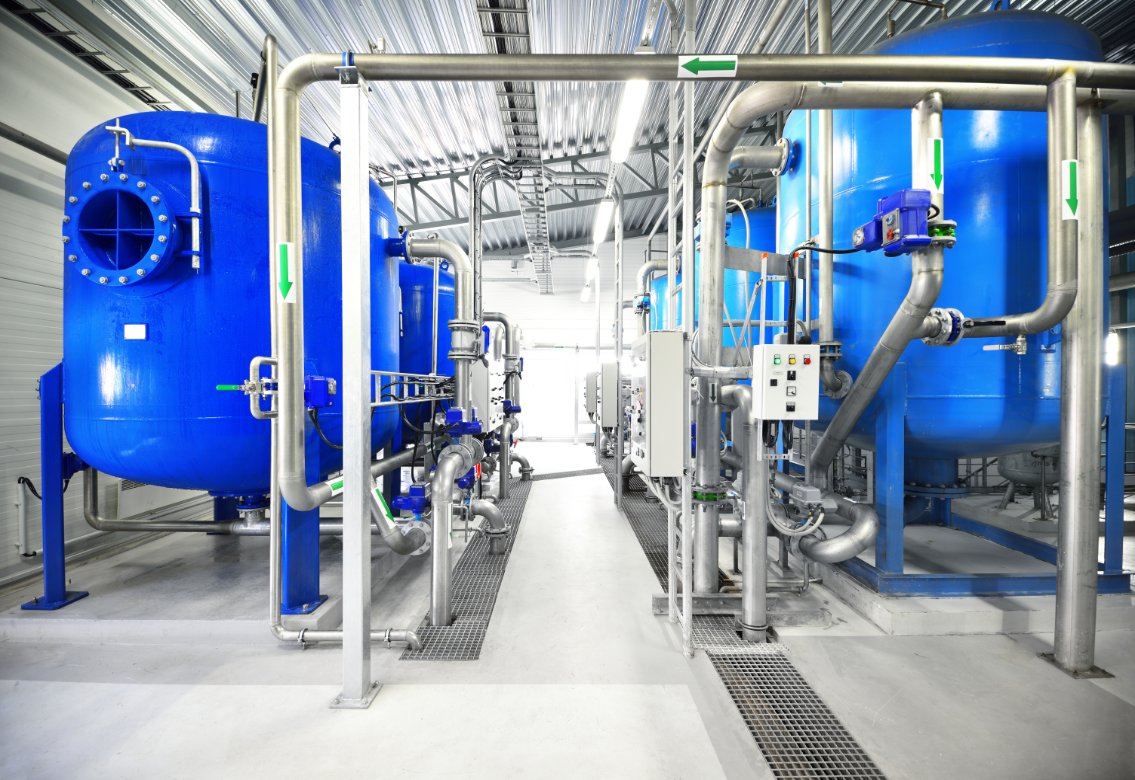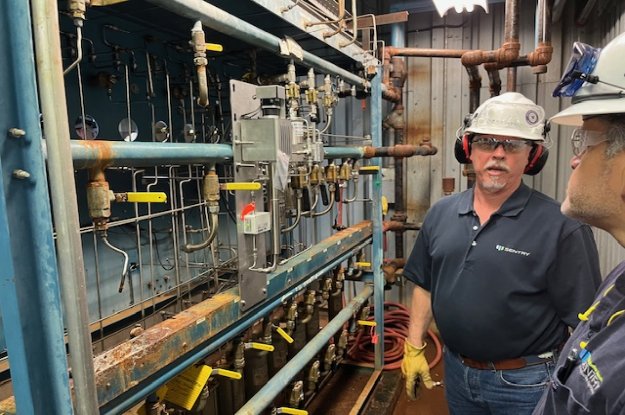Trisodium Phosphate Could Improve Your Boiler Water Treatment

Industrial boilers generate power to run equipment in many kinds of manufacturing plants and combined heat and power facilities. Impurities in the boiler feedwater can cause scaling inside the boiler, which can lead to equipment damage, unexpected downtime in the plant, and sluggish energy creation. That’s why it’s critical to limit impurities in a boiler system to maximize output.
One way to do this is to treat boiler feedwater with trisodium phosphate (Na3PO4, or TSP), a chemical additive often used as a boiler scale inhibitor to prevent build-up and corrosion. Phosphates buffer the boiler water, reducing the chance of large pH swings. ASME suggests that feed water be kept at a pH of 8.3-10.5, and sodium phosphates like TSP help fulfill this requirement.
When to Use TSP in Boiler Water
TSP is a common chemistry control regime in boiler systems at or under 1,000 psig operating pressure. It’s a popular choice for two reasons: it’s inexpensive and easy to monitor and control. It’s usually added to industrial boilers in an aqueous solution by a chemical feed pump that automatically doses the TSP based on a controller that monitors boiler pH.
Once administered, the TSP reacts with water-soluble calcium salt and magnesium salt – two culprits of scaling in boiler systems – to form insoluble calcium phosphate, magnesium phosphate and other sediments that will stay suspended in water and won’t adhere to the boiler to form scale. At the same time, the excess TSP will soften any existing scale, causing it to fall off and resuspend into the water. This can then be easily removed from the boiler via routine blow down of the system.
Phosphate treatment is recommended when:
· Your plant isn’t able to frequently monitor piping of the water system
· Your plant experiences infrequent shutdown or cleanouts
· High-quality feedwater isn’t available
· Water treatment costs need to stay low
Advantages of Adding TSP to Boiler Equipment
Controls pH. TSP helps maintain and control the pH level of the water in the boiler to act as a scale inhibitor.
Operational improvements. Using TSP can help save the amount of coal used by boiler, maintain the safety of boiler and extend its service life.
Less toxic. TSP doesn’t produce toxic fumes like other chemical additives, making it safer for plant personnel and the public.
Widely available. It was originally used as a common cleaning agent in soaps and detergents, but was eventually isolated into its own agent with a pH of 1%, or very basic. Today, TSP is widely available and easily accessible.
Environmental impact. TSP is more environmentally friendly than other chemical additives. Since the late 1960s, it has been used less frequently in the United States and many other parts of the world because it can cause extensive algae growth in lakes and rivers, which could kill water plants and animals. However, when disposed of properly, TSP can have less impact than other additives.
Multiple uses. It works on many different surfaces to dissolve rust and other scaling, making it a versatile treatment option.
Deciding how and when to treat your boiler system with TSP requires an understanding of a variety of factors, including boiler design and pressure, as well as the effectiveness and reliability of the makeup water treatment system. These factors must be evaluated carefully for each plant, as a standardized approach can lead to serious problems.
Sentry can provide insight on the best solution for treating boiler water in your plant. Contact us at +1-262-567-7256, or complete our online contact form for more information.

Written by Sentry Equipment
With proven sampling expertise since 1924, Sentry products and services provide business operations the critical insights to optimize process control and product quality. We deliver true representative sampling and analysis techniques to customers around the globe, empowering them to accurately monitor and measure processes for improved production efficiency, output and safety. Standing behind our commitments, we are determined to tackle any application, anywhere.
Related Posts
Power Generation
Maximize Co-Generation Reliability with Steam and Water Sampling
Combined heat and power facilities (CHP), also known as co-generation power plants, create high-pressure steam to generate power and provide process steam. Process plants seek to minimize the use of make-up water by re-using condensate that theoretically should be clean water.
Read More
Power Generation
CASE STUDY: Replace Your SWAS Panels
In terms of total annual net electricity generation, this power plant is ranked #44 out of 11,979 power plants nationwide.
Read More
Power Generation
Do You Trust Your Process Analytics?
Accurate sampling all depends on regular maintenance. Are you maintaining the critical instruments that your plant relies on?
Read More